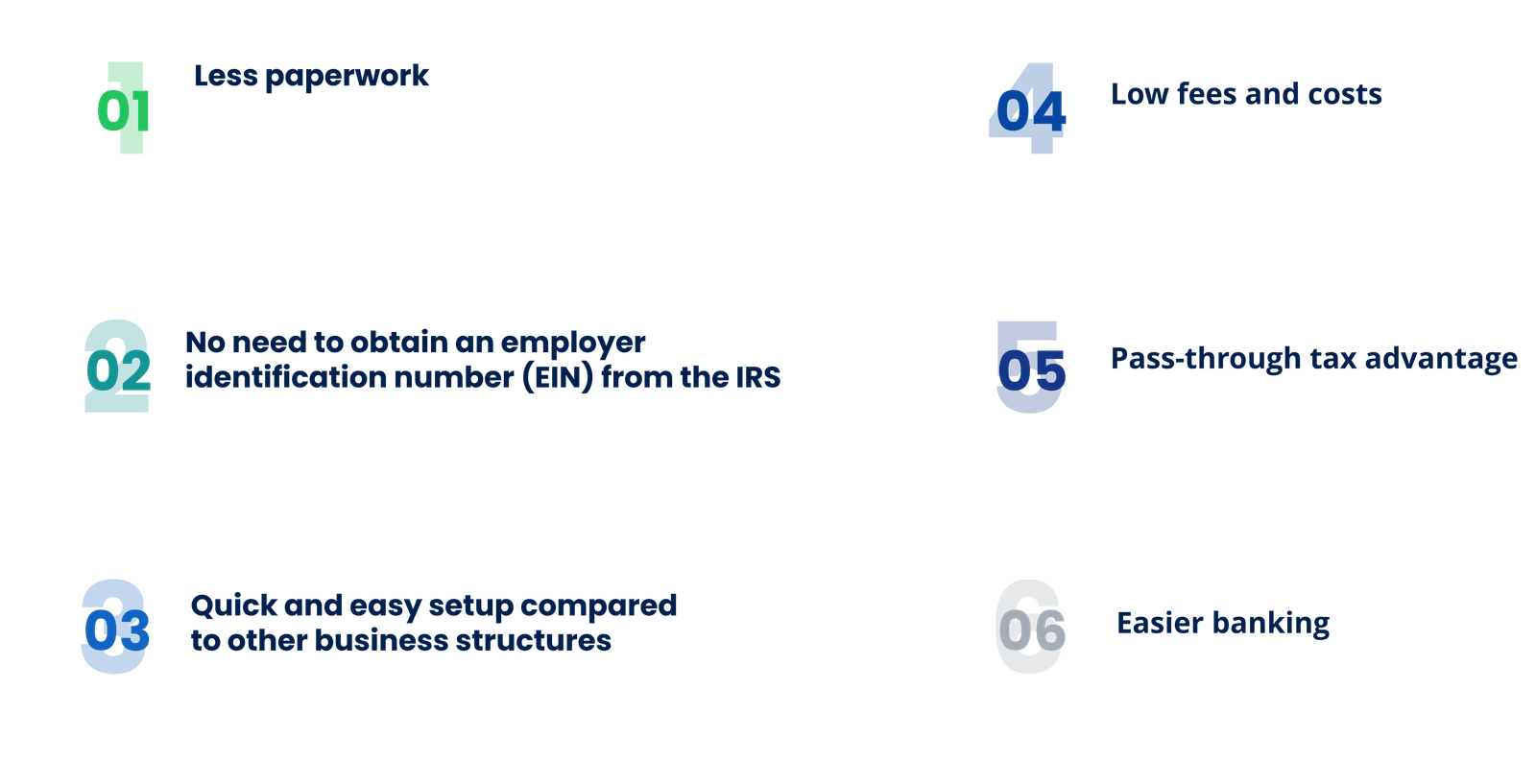A sole proprietorship, also known as a sole trader or a proprietorship, is an unincorporated business with only one owner who pays personal income tax on business profits.
Due to a lack of government oversight, a sole proprietorship is the easiest type of business to start or shut down. As a result, these types of enterprises are extremely popular among sole proprietors, independent contractors, and consultants. Because a distinct business or trade name isn't required, many single owners operate under their own identities.
What is a Sole Proprietorship?
In contrast to a limited liability company (LLC), or a limited liability partnership (LLP), a single proprietorship does not form a separate legal entity. As a result, a sole proprietorship's business owner is not immune from the entity's liabilities.
The obligations of a sole proprietorship, for example, are also the debts of the owner. However, because all revenues flow directly to the business's owner, the profits of a sole proprietorship are also the profits of the owner.
Features of Sole proprietorship
A sole proprietorship is taxed as an extension of the owner, and when a firm grows, it can be legally reformed to become a partnership or a corporation. When choosing a single proprietorship for your firm, keep the following information in mind:
- Regardless of whether an owner uses a unique business name, the owner receives all earnings and bears full responsibility for all losses and obligations. The IRS enables a sole proprietor's spouse to operate in the business without being considered a partner, which is an important exception to the sole proprietorship rule. This clause allows you to keep an additional employee while still being deemed a sole proprietorship.
- A sole proprietorship is simple to set up. A business name must be chosen, and a "doing business as" (DBA) must be filed with the local tax authorities. Because there is no separation between the business and the owner, a sole proprietorship is not regarded a "legal entity." The company and its owner are regarded as one and the same.
- As a sole proprietor, the owner has the ability to hire workers and independent contractors, as well as delegate decision-making authority to the hired staff.
- Regardless of the preceding statement, a sole proprietorship's owner has limitless liability for the business, including complete responsibility for all debts and/or losses incurred as a result of business operations. As a result, the owner is entitled to all profits made as a result of doing business.
- Another significant feature of a sole proprietorship is that the owner has complete control over the brand's conduct while founding the company (and during its life). This means that the owner doesn't have to worry about the intentions of partners, a board of directors, or anyone else who could be interested in the company. The business's operations and maintenance are solely the responsibility of the business owner.
The Benefits and Drawbacks of a Sole Proprietorship
The key advantages of a sole proprietorship are the previously noted pass-through tax benefit, ease of formation, and cheap formation and maintenance costs.
You don't have to fill out a lot of paperwork with a sole proprietorship, such as registering with your state. Depending on your state and type of business, you may need to obtain a license or permission. However, if you have fewer paperwork, you can get your firm up and running faster.
Because you do not need to receive an employment identification number (EIN) from the IRS, the tax process is simplified. You can get an EIN if you like, but you can also pay SSN taxes with your actual Social Security number instead of an EIN.
You also don't have to pay any costs involved with renewing your registration or any other fees linked with the procedure because you aren't obligated to register with your state. This saves you a significant amount of money, which is critical when beginning a business.
A sole proprietorship does not require a business checking account, which is required by other business formats. All of your finances can be handled through your own personal checking account.
The downsides of a sole proprietorship include the owner's limitless liability outside of the firm and the difficulty in acquiring capital investment, particularly through traditional routes such issuing shares and receiving bank loans or lines of credit.
When a company is registered, it receives certain state protection. When it comes to responsibility, a sole proprietorship has no protection because it is not registered. Creditors cannot seize your personal assets, such as your home, if you form an LLC. With a sole proprietorship, you are not protected in this way.
A solitary proprietorship can also be difficult to fund. Banks like to cooperate with well-established businesses. It can be risky for banks to lend money to someone who is just starting out and has a modest balance sheet. Large investors demand more sophisticated firms, therefore securing ownership from them can be tough.
As a result, entrepreneurs start off as a legal entity with infinite liability. As a firm grows, it may be necessary to convert to a limited liability company (LLC) or a corporation (e.g., S Corp, C Corp, or Benefit Corp).

Pros
- Less paperwork
- No need to obtain an employer identification number (EIN) from the IRS
- Quick and easy setup compared to other business structures
- Low fees and costs
- Pass-through tax advantage
- Easier banking
Cons
- Unlimited liability goes from business to owner
- Difficulty in raising capital
Conclusion
A sole proprietorship is a simple way for an individual to form their own company. For the most part, it does not necessitate registering with a state body or obtaining an EIN from the IRS. As a result, a sole proprietorship is a simple and rapid way for an individual to form and run a firm. It's critical to be aware of some of the hazards involved, such as the transfer of all liabilities from the company to the individual.

